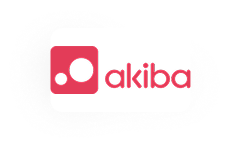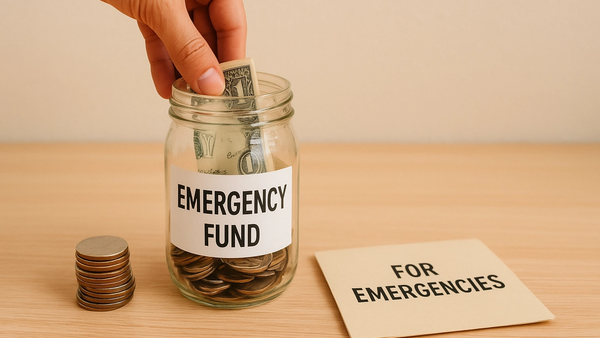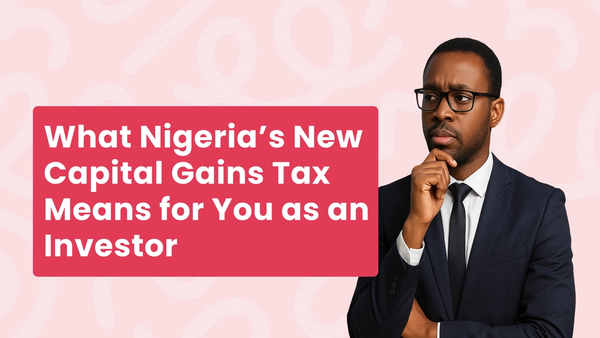If you’re a Nigerian investor looking to balance risk, earn steady returns, and add more stability to your portfolio, bonds are a smart option to consider. They are one of the most reliable financial instruments for long-term planning, offering predictable income while protecting your capital.
In Nigeria, you can invest in bonds through banks, licensed stockbrokers, or directly via the Debt Management Office (DMO), for instance, through the Federal Government of Nigeria (FGN) Savings Bonds. You can also gain exposure by investing in bond funds managed by asset management companies.
This guide breaks down what bonds are, how they work, the types available in Nigeria, and the different ways you can buy them.
What Is a Bond?
A bond is essentially a fancy loan agreement between you (the investor) and an issuer (the borrower). The issuer could be the government or a corporation in need of funds. By buying a bond, you’re lending money to that issuer. In exchange, they agree to:
- Pay you interest (coupon payments): This is usually done semi-annually or annually, based on a fixed or floating rate.
- Return your capital (principal): At the end of the bond’s term (the maturity date), you get back the amount you initially invested.
This structure makes bonds less volatile than stocksand ideal for conservative or income-focused investors.
Here’s an example
Suppose the Federal Government issues a bond to raise funds for building new railway lines. You decide to invest ₦500,000.
Coupon rate: 8% per year
Tenor (maturity): 3 years
Here’s how it works:
Each year, you receive ₦40,000 in interest (₦20,000 every six months if paid semi-annually). At the end of 3 years, you also get back your ₦500,000 principal.
Now imagine that after one year since you invested, market interest rates drop to 6%. Your bond, which pays a higher 8%, becomes more attractive. If you decide to sell it on the secondary market, you might find a buyer willing to pay ₦520,000. That gives you a ₦20,000 capital gain in addition to the interest you’ve already collected.
Types of Bonds in Nigeria
There are several kinds of bonds available to Nigerian investors:
1. Sovereign Bonds (FGN Bonds)
Sovereign bonds are debt instruments issued by the Federal Government of Nigeria (FGN). They are regarded as the safest investments in the Nigerian bond market because repayment of both principal and interest is guaranteed by the government. Proceeds are typically used to fund infrastructure projects and cover budget deficits.
There are two major categories available to investors:
1. FGN Savings Bonds
This is tailored for retail investors who want an easy entry point.
The minimum subscription starts as low as ₦5,000, with investments allowed in multiples of ₦1,000 and the maximum you can invest is ₦50 million. These bonds usually come with short to medium-term tenors (2–3 years) and are issued every month by the Debt Management Office (DMO).
2. Regular FGN Bonds
They are typically structured for institutional and high-net-worth investors. In the primary market, subscription often starts from about ₦50 million and above. However, smaller investors can still participate through the secondary market (via the NGX or FMDQ) or by investing in bond funds. These bonds have much longer durations, ranging anywhere from 3 years up to 50 years.
Now Talking Interest Rates…
The coupon (interest) rates on sovereign bonds are not fixed but depend on the tenor and the prevailing market conditions at auction. For instance, recent FGN Savings Bonds offered in early 2025 carried rates between 16% and 18% per annum. Other FGN bonds may differ depending on maturity and demand.
How to Buy
- FGN Savings Bonds: Accessible through accredited stockbroking firms during the DMO’s monthly offer windows.
- Regular FGN Bonds: Available via auctions conducted by Primary Dealer Market Makers (PDMMs), or in the secondary market through licensed brokers and investment platforms.
2. Corporate Bonds
While sovereign (government) bonds are considered the safest, Nigerian investors can also buy corporate bonds, which are issued by private or public companies to raise money for expansion, debt refinancing, or new projects. By purchasing a corporate bond, you’re basically lending money to the company in exchange for periodic interest payments and the eventual return of your capital at maturity.
In Corporate Bonds…
- Issuer: Private companies or listed corporations.
- Risk & Return: They usually offer higher interest rates (yields) than government bonds to compensate investors for the added credit risk.
- Tenor: Most corporate bonds in Nigeria range between 3 and 10 years.
- Tradability: Corporate bonds can be traded on the Nigerian Exchange (NGX) or through the FMDQ OTC market.
For example…
Suppose a large Nigerian bank issues a ₦20 billion corporate bond at a 19% coupon rate with a 5-year maturity. If you invest ₦1,000,000:
- You’ll receive ₦190,000 annually (or semi-annual instalments, depending on the structure).
- At the end of the 5 years, your ₦1,000,000 principal is repaid.
However, corporate bonds do carry some credit/default risk. If the issuing company struggles financially, it may delay or default on interest and principal repayment. Additionally, some corporate bonds may be thinly traded, making it harder to sell before maturity.
3. Subnational Bonds (State Government Bonds)
Subnational bonds are debt securities issued by state governments in Nigeria. Just like the Federal Government issues sovereign bonds, states also raise money through bonds to finance infrastructure projects such as roads, schools, hospitals, and housing. Most subnational bonds are listed on the Nigerian Exchange (NGX) and the FMDQ OTC Securities Exchange, meaning they can be traded after issuance.
4. Bond Funds
If you’d rather not buy individual bonds directly, you can invest in bond funds (or fixed-income mutual funds). These are managed investment vehicles that pool money from multiple investors and invest in a basket of bonds, including FGN, subnational, and corporate bonds.
What you should know about Bond Funds
- Management: They are run by professional asset managers who decide which bonds to buy and when to sell.
- Diversification: Your money is spread across several bonds, reducing concentration risk.
- Accessibility: Minimum investments are often as low as ₦5,000 – ₦10,000, depending on the fund manager.
- Liquidity: Unlike direct bonds that may lock your money until maturity, bond funds usually allow you to redeem units on a daily or weekly basis.
Advantages of Bond Funds
- Convenience: No need to open a CSCS account or track auctions.
- Diversification: Exposure to a mix of sovereign, subnational, and corporate bonds.
- Low Entry Point: Makes fixed income investing accessible to beginners.
Professional Oversight: Experts handle portfolio selection and rebalancing.
Limitations of Bond Funds
- Fees: Fund managers charge management fees, which slightly reduce net returns.
- Less Control: You don’t pick the individual bonds — the manager does.
- Variable Returns: Payouts may fluctuate depending on the performance of the underlying bonds.
Bond Funds are the simplest way for beginners to gain exposure to bonds, offering diversification and liquidity with small entry amounts.
Where Can You Buy Bonds in Nigeria?
In the past, buying bonds in Nigeria was a process reserved mainly for institutional investors, requiring direct access to banks or brokers. Today, it’s much easier, with the rise of digital investment platforms and more user-friendly processes through stockbrokers and asset managers. This means everyday Nigerians can now invest in bonds with just a few clicks on their phone.
Broadly, there are two main avenues to access bonds:
1. Primary Market (Newly Issued Bonds)
The primary market is where bonds are first introduced to the public.
Government Bonds:
The Federal Government, through the Debt Management Office (DMO), issues bonds such as the FGN Bond and FGN Savings Bond. These are typically offered via monthly or quarterly auctions. Investors subscribe by submitting bids through authorized banks or stockbroking firms.
Corporate Bonds:
Companies raise funds by issuing corporate bonds through public offers managed by investment banks. Investors can participate directly by filling out subscription forms during the offer period.
Buying in the primary market gives you access at the original issue price (often ₦1,000 per unit for FGN bonds).
2. Secondary Market (Trading Existing Bonds)
The secondary market is where already-issued bonds are bought and sold between investors. Trading takes place on platforms like the Nigerian Exchange (NGX) and the FMDQ OTC Securities Exchange.
You’ll need a CSCS (Central Securities Clearing System) account opened through a licensed broker, like Vetiva. From there, you can buy bonds that other investors are selling or sell your own bonds before maturity. The secondary market offers liquidity. If you need cash before your bond matures, you can sell it, though the price you get will depend on interest rate movements and demand.
Risks of Investing in Bonds
Even though bonds are safer than stocks, they still carry risks:
- Interest Rate Risk: If market rates go up, the value of your existing bond goes down.
- Inflation Risk: Rising inflation can erode your real returns.
- Credit/Default Risk: Governments rarely default, but corporates or states might miss payments.
- Liquidity Risk: Some bonds are hard to sell quickly without losing value.
Reinvestment Risk: Coupon payments may have to be reinvested at lower rates if interest rates fall.
Tips for Bond Investors
- Match tenor to your goals: Don’t lock money long-term if you’ll need it soon.
- Diversify issuers: Spread investments across FGN, subnational, and corporate bonds (or use bond funds).
- Keep an eye on inflation: Always compare coupon rates to inflation to know your real return.
- Use trusted platforms: Buy through accredited brokers, banks, or licensed digital platforms.




